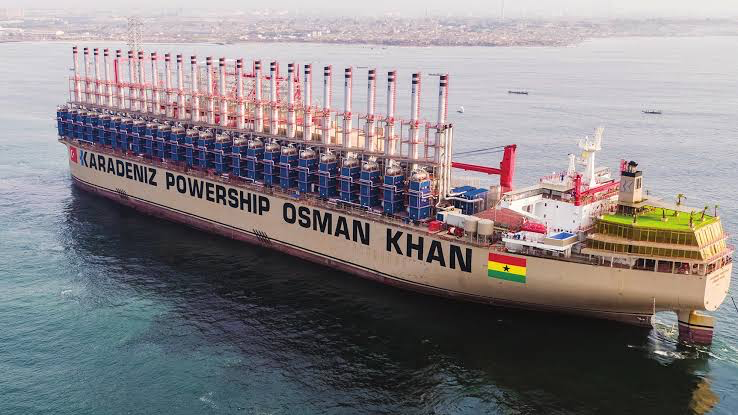370
The Organization Undoing Tax Abuse (Outa) has announced its intention to challenge the generation licenses granted to Karpowership in South Africa. This move comes as part of Outa’s ongoing efforts to ensure transparency and accountability in the country’s energy sector.
Karpowership, a Turkish company, was awarded licenses to provide floating power stations to alleviate South Africa’s persistent electricity shortages. However, Outa has raised concerns about the environmental impact and the transparency of the procurement process.
Outa’s CEO, Wayne Duvenage, stated that the organization has identified several issues with the Karpowership deal, including potential environmental risks and a lack of proper public consultation. “We believe that the awarding of these licenses did not follow due process and that the environmental assessments were insufficient,” Duvenage said.
The Karpowership project involves mooring ships off the coast to generate electricity, a solution that has been used in other countries facing energy crises. While proponents argue that it offers a quick fix to South Africa’s energy woes, critics point to potential harm to marine life and coastal ecosystems.
Outa’s legal challenge aims to halt the implementation of the Karpowership licenses until a thorough review is conducted. They argue that more sustainable and less harmful alternatives should be considered to address the country’s energy needs.
Environmental activists have echoed Outa’s concerns, emphasizing the importance of protecting South Africa’s rich marine biodiversity. “The potential impact on our marine environment cannot be overlooked. We must prioritize long-term sustainability over short-term fixes,” said one environmental advocate.
The South African government, on the other hand, has defended the Karpowership deal, citing the urgent need to address load shedding and ensure energy security. Energy Minister Gwede Mantashe has argued that the floating power stations are a necessary step to stabilize the grid and support economic growth.
This legal battle is set against the backdrop of South Africa’s ongoing energy crisis, which has seen frequent power cuts and widespread frustration. The government’s efforts to diversify the energy mix and improve reliability have faced numerous challenges, including political, financial, and environmental hurdles.
As Outa prepares to take its case to court, the outcome will have significant implications for South Africa’s energy policy and environmental protection efforts. The organization remains hopeful that the judiciary will uphold principles of transparency and environmental stewardship.
In the face of these challenges, there is hope that South Africa can find a balanced approach to its energy needs—one that ensures reliable power while safeguarding the environment for future generations.
Source: Engineering NEws
Karpowership, a Turkish company, was awarded licenses to provide floating power stations to alleviate South Africa’s persistent electricity shortages. However, Outa has raised concerns about the environmental impact and the transparency of the procurement process.
Outa’s CEO, Wayne Duvenage, stated that the organization has identified several issues with the Karpowership deal, including potential environmental risks and a lack of proper public consultation. “We believe that the awarding of these licenses did not follow due process and that the environmental assessments were insufficient,” Duvenage said.
The Karpowership project involves mooring ships off the coast to generate electricity, a solution that has been used in other countries facing energy crises. While proponents argue that it offers a quick fix to South Africa’s energy woes, critics point to potential harm to marine life and coastal ecosystems.
Outa’s legal challenge aims to halt the implementation of the Karpowership licenses until a thorough review is conducted. They argue that more sustainable and less harmful alternatives should be considered to address the country’s energy needs.
Environmental activists have echoed Outa’s concerns, emphasizing the importance of protecting South Africa’s rich marine biodiversity. “The potential impact on our marine environment cannot be overlooked. We must prioritize long-term sustainability over short-term fixes,” said one environmental advocate.
The South African government, on the other hand, has defended the Karpowership deal, citing the urgent need to address load shedding and ensure energy security. Energy Minister Gwede Mantashe has argued that the floating power stations are a necessary step to stabilize the grid and support economic growth.
This legal battle is set against the backdrop of South Africa’s ongoing energy crisis, which has seen frequent power cuts and widespread frustration. The government’s efforts to diversify the energy mix and improve reliability have faced numerous challenges, including political, financial, and environmental hurdles.
As Outa prepares to take its case to court, the outcome will have significant implications for South Africa’s energy policy and environmental protection efforts. The organization remains hopeful that the judiciary will uphold principles of transparency and environmental stewardship.
In the face of these challenges, there is hope that South Africa can find a balanced approach to its energy needs—one that ensures reliable power while safeguarding the environment for future generations.
Source: Engineering NEws



